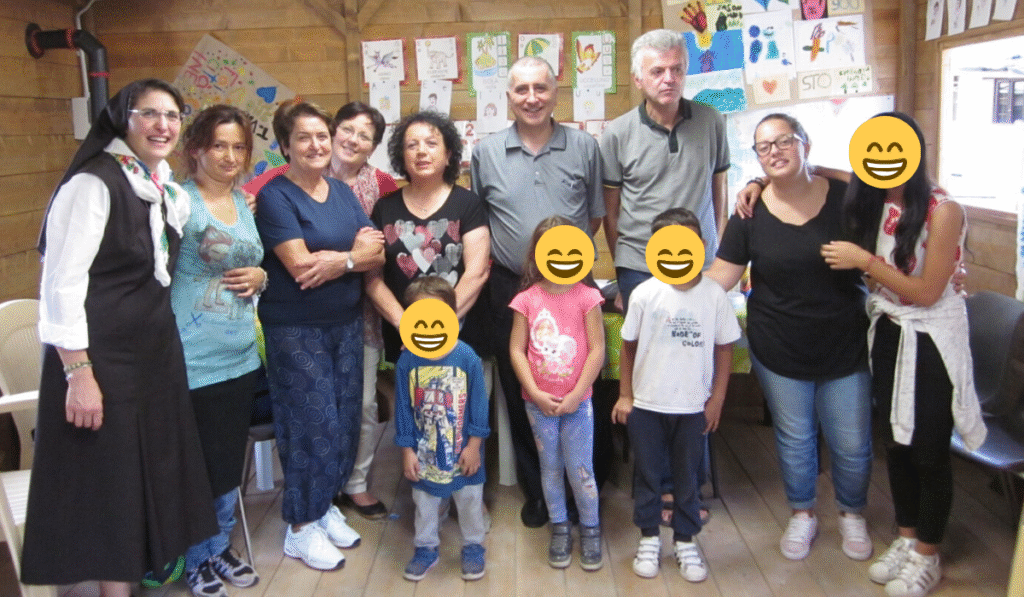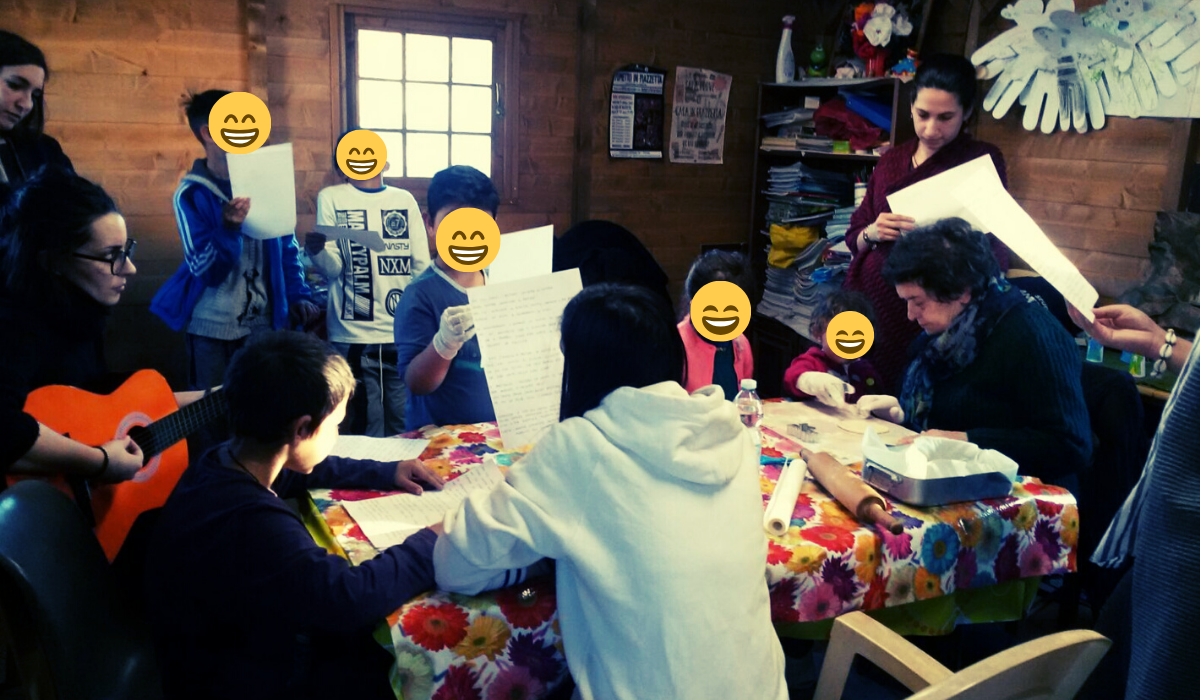“Don’t be duped!”

The after-school experience for the children of the nomad camp of Pistoia, Italy, reported through the voice of Cristina, mother, teacher, and volunteer in the small wooden school in the camp of Brusigliano.
“One day, about five years ago, my mother told me that a certain Sister Gabriella, Franciscan of the Poor, arrived in our city and was looking for help to teach reading and writing to the children of the nomad camp of Pistoia. I burst out laughing and I thought to myself: I will NEVER go there, because I’m very picky and I teach in high school, I’m not good with children,” says Cristina, a teacher of Religion, originally from Prato but from Pistoia by adoption. “My mother looked at me perplexed and, not very trusting, just told me, ‘take care not to be duped!’“.
No sooner said than done. A few days later, two young people from the Focolare got in touch with Cristina. They wanted to put themselves at the service of this experience. They just needed someone to accompany them. “All right, they do it – I said to myself – I might as well involve some of my pupil girls. Then we met, to prepare our lessons and begin our adventure… In short, I have resisted very little!”
Initially, the small group of volunteers just met the children in the wooden and sheet metal huts. Then, thanks to the determination of Sister Gabriella – who had a great experience in the nomad camp of Messina – the Caritas office and the local bishop were involved. With their contribution, they assembled a small wooden house with a stove and power supply. “At that point, we had a small school! We got organized in shifts, twice a week, to teach the children of the camp, who are of various ages. We talked a lot with parents and grandparents, we built friendships, and mutual trust grew. Some children who didn’t talk to each other because of disagreements between their parents could finally play together,” says Cristina.

Then, the experience suffered a setback. “One of the girls went to study in Belfast, Sister Gabriella had been transferred, and I was left alone. When everything seemed to be dead, the Franciscan Sisters of the Poor sent another nun, and now the experience is continuing: retired teachers, girls from the Catholic Action, and even a nun from another order are participating.”
But what does it mean for Cristina to go to the Roma camp in Pistoia?
“There, I met a world previously unknown to me, which lives parallel to the rest of the city. Their material and spiritual poverty is greater in comparison to the situations I have known, for example, in Africa, where everyone dreams of a future! All this makes me suffer a lot. The local newspapers often talk about them in a way that anguishes me, because they don’t take into account the fact that there are not only mountains of rubbish and bulky waste at the camp but men, women, and children too. The media describe this place as an open-air dump. Instead, for us it is a place of friendship and hope for a better future that even these parents would like to guarantee their children.”
Cristina confesses that she is always struggling to overcome her obsession for disinfection, and she is always surprised when, on leaving the camp, she sees that her car still has all four tyres… “But I am so fond of these people. The children are beautiful and their eyes are full of amazement. At the camp, I meet my friends with whom we exchange recipes, confidences, and worries, and we make jokes about our husbands and life. The same friends that I greet with joy when we are downtown and who, despite the many worries, manage to face life’s adversities with courage.”
This is how, even in the nomad camp of Pistoia, by overcoming prejudices and stigma on a daily basis, they contribute to building a small piece of the united world.
